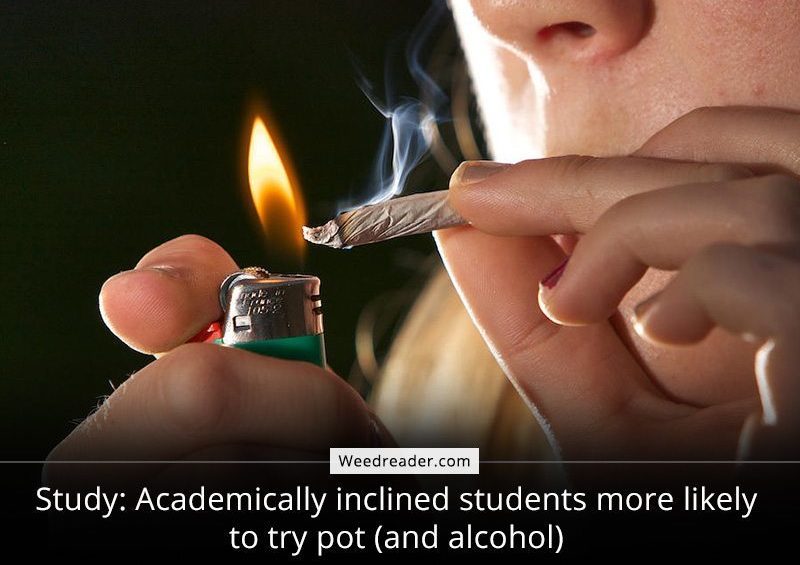Smart students tend to experiment more with drugs and alcohol, but James Williams and Gareth Hagger-Johnson, co-authors of a new study, point out some of the reasons behind the phenomenon. The study, published Wednesday in the British Medical Journal Open, found that academically gifted teens are less likely to smoke cigarettes and more likely to drink alcohol and smoke pot compared with those with lower scores.
Wanting to understand more about a recent decrease in the number of teens who were admitting to trying tobacco, alcohol, and cannabis (down 4%, 6% and 9% respectively from the figures in 2004), Williams and Hagger-Johnson surveyed more than 6,000 students from public and private schools across England. They tracked each student’s use of tobacco, alcohol, and cannabis from age 13 or 14 until age 19 or 20, as well as their academic scores.
What they found was that during their early teens, were slightly more likely to say they used cannabis and less likely to use tobacco and alcohol. Later on, those same high-scoring students were more than twice as inclined to drink alcohol but less likely to binge-drink. The highest-scoring pupils were almost twice as likely to use cannabis regularly and 50% more likely to use it occasionally compared with lower-scoring teens.
Williams and Hagger-Johnson drew a few conclusions from their study. One was that cognitive ability indicates an openness to new experiences, which paired with boredom due to a lack of stimulation in class. Another was that smart teens run with older peers who were already into their phase of experimenting with substances. Drinking patterns, they say could be related to the socioeconomic status of their parents, stating that “parental influence, since parents with high cognitive ability and socioeconomic status are known to drink alcohol more regularly.”
Dr. Amir Levine, a psychiatrist and assistant professor at Columbia University Medical Center, finds the results interesting but points out the necessity “to differentiate between substance experimentation and problem drug use.” He adds, “We usually think about youth who are not doing well in school as the ones that are prone to alcohol and drug use.”





